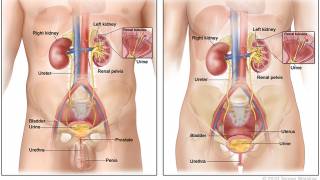NantKwest ‘Triangle-Offense’ Induces Immunogenic Cell Death

A California based therapeutics company announced results from their Phase 1 clinical trial investigating a novel, first-in-human immunotherapy consisting of NantKwest’s off-the-shelf, PD-L1 tumor-targeted NK cells.
The findings on the Phase 1 safety and early signals of efficacy were reported on January 14, 2020, by Patrick Soon-Shiong, M.D., Chairman and CEO of NantKwest.
“We hypothesize that a common treatment protocol that harnesses both the natural-killer cell and the T cells could be effective in treating cancer across multiple tumor types.”
“This has been supported by the early signals of safety and efficacy in Phase 1 and 2 studies of NantKwest’s natural killer cells in advanced cancers.”
“We recently reported at the 2019 Society for Immunotherapy of Cancer conference complete responses in third-line Merkel cell carcinoma and fourth-line head and neck cancers when haNK CD-16 NK cells combined with Pfizer’s PD-L1 antibody, Avelumab, and with ImmunityBio’s N-803, an IL-15 superagonist were administered,” said Dr. Soon-Shiong, in a press release.
“Most recently we reported complete responses using combination therapies which included haNK, Avelumab, and N-803 in Triple-Negative Breast Cancer.
“Durable complete responses were observed in these patients who had failed all standards of care therapy for breast cancer. The results were presented at the 2019 San Antonio Breast Cancer Symposium (SABCS) in December 2019.“
“The evolution of the next generation NK in our platform was now to enable haNK cells to target tumors by expressing PD-L1 CAR (chimeric antigen receptor) on the surface of haNK NK cells.
“These PD-L1.taNK NK cells have the properties of targeting PD-L1 on tumors, without the need of an additional PD-L1 checkpoint, Avelumab.”
The FDA authorized the first-in-human safety studies of PD-L1.t-haNK (Quilt 3.064; NCT04050709) at doses of two billion cells administered bi-weekly as outpatients. The study is now enrolling the dose cohort of four billion cells per infusion.
No dose-limiting or treatment-related events were noted in patients treated to date in this first dosing cohort.
In addition, NantKwest and ImmunityBio, Inc., reported on January 14th, a compassionate use expanded access combining the PD-L1-targeted NK cell with ImmunityBio’s IL-15 fusion protein (N-803) in a patient with metastatic pancreatic cancer.
“We are extremely pleased that the FDA granted us this expanded IND authorization to initiate this novel immunotherapy treatment enabling the cross-talk of the innate natural killer system with the adaptive T cell,” said Dr. Soon-Shiong.
“Achieving complete response in metastatic pancreatic cancer and durable, complete responses in metastatic TNBC patients that have failed all current standards of care is a promising finding which may further validate our approach to orchestrate both the innate and adaptive immune system,” continued Soon-Shiong.
“Pancreatic cancer and TNBC are highly aggressive cancers with limited treatment options.”
“These results are important, proof-of-concept supporting our hypothesis that comprehensively activating the immune responses of the NK, T, and Dendritic cells, the “triangle offense”, would induce immunogenic cell death leading to durable responses, even among this challenging patient population.”
“Based on these encouraging findings, we plan to initiate clinical trials to confirm efficacy in second-line metastatic pancreatic cancer and third-line Triple Negative Breast cancer.”
NantKwest is an innovative, clinical-stage immunotherapy company focused on harnessing the power of the innate immune system to treat cancer and virally induced infectious diseases.
Cancer Immunotherapy news published by Precision Vaccinations.
Our Trust Standards: Medical Advisory Committee









